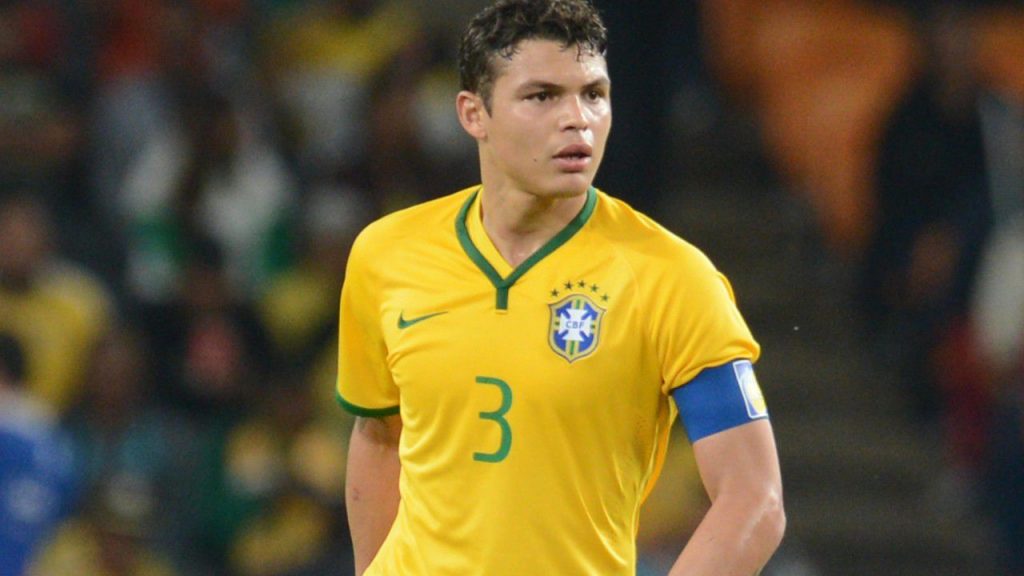In the eyes of its passionate fans, Brazil’s soccer team may have fallen disappointingly short in its quest for the 2014 World Cup. But in the eyes of the mother of the team’s captain, there is and always will be much to celebrate, simply because he is alive.
Because Thiago Silva might not have been the captain of the Brazilian national team had his mother Angela had an abortion when she was pregnant with him —a choice she considered making, if not for her own father.
During a recent interview with the Brazilian television network O'Globo, Angela, revealed the story about her 29-year-old son.
"I cried on my father's shoulder and said, 'Daddy, I don't want to get an abortion, but I'm also not ready to raise a child'," Angela recalled.
Her father convinced her not to end the child's life. "He wouldn't let me do that, that I commit a sin," she said.
Thiago and his family had a difficult and complicated life in the slums — known as favelas — of Santa Cruz in Rio de Janeiro, Brazil.
"I lived in a well-known favela,” Thiago explained. “The police were always there. Because of the danger, I always thanked God when I got home safely.”
And when he was 14 years old, he had a serious bout with tuberculosis, and spent six months hospitalized. "It was the toughest battle of my life," he recalled.
His mother also remembered the difficulties of that period: "Life in that room was depressing," she said.
But her son recovered to become an international soccer star, regarded as one of the world’s premier defenders, and a member of Brazil’s 2008 and 2012 Olympic soccer teams that won bronze and silver medals, respectively.
In the 2014 World Cup, he scored Brazil’s first goal of the team’s quarterfinal victory over Colombia. Later in the match, however, he received a yellow card which got him suspended for the semifinal against Germany. His absence on defense was a major factor in Germany’s stunning 7-1 victory.
Still, for Thiago Silva — who, before the World Cup, had admitted the idea of winning the World Cup on home soil kept him awake at night — and the Brazilian soccer populace, there is still 2016, when the Olympic Games come to Rio. There, Brazil will try to earn a gold medal that could help ease the disappointment of World Cup 2014.
Catholic News Agency contributed to this story.
World Cup addenda…
The final between Germany and Argentina July 13 prompted some light-hearted pre-match speculation among soccer and Vatican watchers as to whether the Argentine-born Pope Francis and the German-born Pope Benedict would watch the match together.
Answer: No. Pope Benedict is not a soccer fan, and Pope Francis (who is a soccer fan) did not watch in order to stay neutral, having also promised he would not pray for victory by Argentina or anyone else, according to Jesuit Father Federico Lombardi, the papal spokesman. He said last week that both men “would want the better team to win, without taking sides.”
Rather, Pope Francis — who received updates from staff throughout the match (Germany won, 1-0) — addressed the importance of intercultural exchange on his @pontifex Twitter account.
"The World Cup allowed people from different countries and religions to come together,” the pope said July 12. “May sport always promote the culture of encounter.”
His tone was in keeping with a message he delivered at the start of the world Cup, asserting that football (soccer in America) teaches three lessons that can promote peace and solidarity around the world: the need to train and work hard to reach goals, the importance of fair play and teamwork, and the need to respect and honor opponents.
“To win, we must overcome individualism, selfishness, all forms of racism, intolerance and manipulation of people,” he said. “Let nobody turn their back on society and feel excluded. No to segregation! No to racism!”
Compiled by Mike Nelson.

